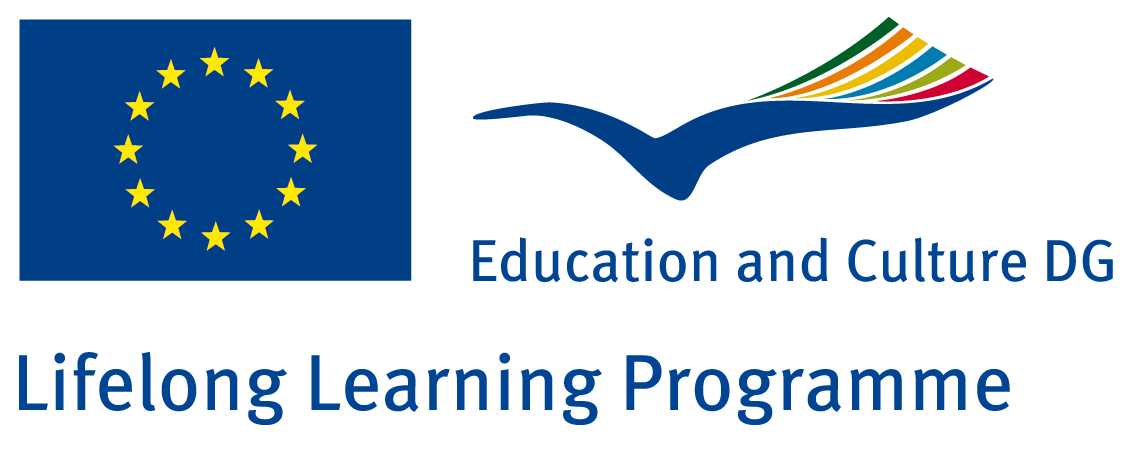Trainings
Transnational training-course on combating racism and xenophobia
In the frame of the Grundtvig learning partnership, an international training-course took place in Berlin from the May 4th until May 13th 2013, which brought together 12 young Roma and Non-Roma adult learners for 9 days with the aim to strengthen their social and civic skills to combat racism and xenophobia through creative actions and campaigns. The main objective of the Learning Partnership for "Roma Youth Empowerment for Active Citizenship" is to bring together Roma organizations from five European countries with a wide experience in adult education for a two year lasting transnational networking and learning process. The main aims of the partnership are to strengthen the foreign language skills, the initiative and the social and civic skills of young adult learners, Roma and non-Roma, to combat racism and xenophobia, as well as to improve the approaches and methods of staff and trainers in the field.
The international training-course hosted by Amaro Foro e.V. targeted youth leaders and active multipliers working with new methods of artistic and intercultural dialogue between European countries, between Roma and non-Roma. The diversity of languages, cultures, identities and forms of artistic expressions constituted the strength of the group dynamic. Using art action as a tool, we developed campaign actions promoting our philosophy of intercultural dialogue, anti-racism and the inclusion of minorities to a broad public .The transnational training-course attempted to strengthen the mutual cooperation between Roma youth groups that work on local level with a specific concept of art action and social inclusion of young people of different social and cultural background. We believe in the long-term cooperation of this network and in the self-initiative and responsibility within the art and creativity work of young people.
During the 9 days all participants took part in various kinds of workshops such as art, dance, theatre, vocal'n'rythm or media. They were taught to cooperate and communicate in teamwork with several nationalities. Moreover, they learnt how to work with themselves, to discover dark and bright sights of themselves and to present those proudly to become self-confident persons. Participants from Slovakia, Hungary, Italy, Bulgaria and Germany created working team without national or ethnical differences. The professional workshop leaders, allowed the development of skills and competences in many ways. Improvement achieved here was transformed into self-improvement of the participants and consequently allowed the participants to transfer the experience to their own work in their local communities.
Transnational training course on creative action to challenge stereotypes and racism “All together now!”
Over 15 young people enjoyed a unique learning opportunity in the transnational training course on creative action to challenge stereotypes and racism “All together now!” that took place on September 27 until October 5, 2013 in Kosice (Slovakia) in the framework of the Grundtvig Learning Partnership on Roma youth empowerment. The seminar, hosted by Roma Education Centre, intended to strengthen the capacity and leadership skills of adult leaders and youth workers who work in the field of intercultural dialogue between Roma and non-Roma, as well as with other minorities. Through the activities of intercultural dialogue this seminar developed further personal skills of participants and gave them effective tools to combat racism and xenophobia. The seminar drew on various artistic and creative tools of art, drama and creative writing, thus strengthened creativity, innovation, mutual cooperation and self-initiative of participants, as well as their competences of foreign language communication and civic skills.
The objectives of the training-course were:
· To develops skills, new methods and approaches with creative tools to combat racism and xenophobia;
· To strengthen leadership skills of young adults engaged in civic activism;
· To implement the new skills of social campaigning in the public;
· To train the capacities and skills of the participants in communication in foreign languages.
In the first phase of the project the participants worked on their skills and methods in group work through different energizers but also with physical exercises. Some of the activities were real outdoor team-building where participants needed to communicate in small teams to reach some goal all together. The aim of the activities was to develop personal and other skills in order to ensure development of leadership and empower people to be able to fight racism and xenophobia together. After the team-building, participants were separated in three groups. The first one was an art workshop. Participants created all the materials for the other groups like sceneries, t-shirts with different messages and the banner which was written in three language English, Slovak, and Romanes. The second workshop was about theatre. The group created a story about a disabled girl who felt the discrimination of the other people just to show to the audience even if you are in difficulties you can live the same life like any person. Participants wanted to demonstrate to them that the change needs to come from inside of the community. They need to and can be the heroes. The third workshop was about writing of personal stories like a drama which afterwards helped the artistic workshop to put together the story.
In second phase participants had the chance to present results of the work in a public event and in the Roma community in Košice Moldava. The group performed and took action with the people from the community. After the community visit, the participants had also a discussion about the living conditions of Roma people. In the third phase participants of the seminar took action in Kosice town. Participants performed also in front of the public in Kosice. What was important is that after each day the participants had a reflection about their own work and experience. In this way participants communicated with each other to share their ideas and to learn more about their experiences.


